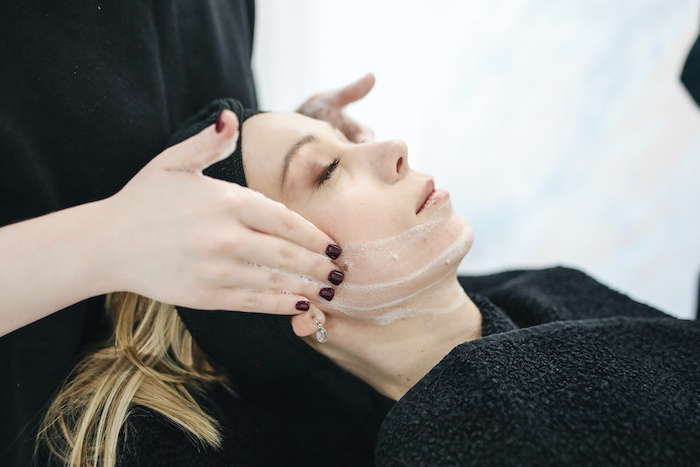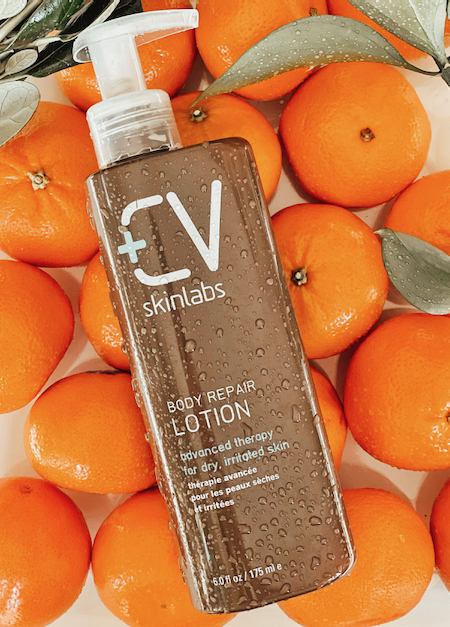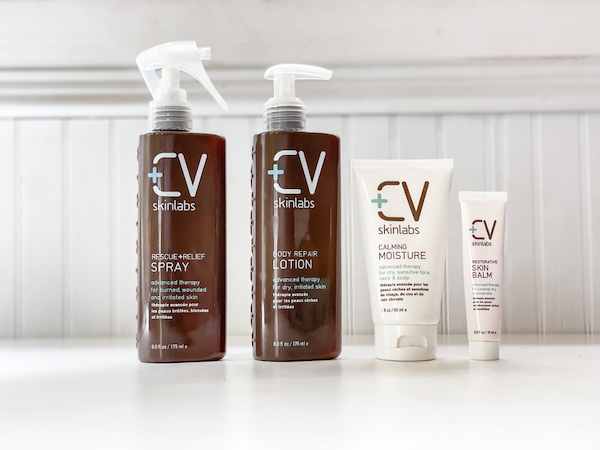
Most of us want to know more about how to counteract skin aging.
Particularly when we start to see signs of it—like more fine lines and wrinkles, sagging, and dullness—we become more motivated to change it.
So we may try new serums, moisturizers, and peels, and though these can help, we have to be careful of one thing: inflammation.
That’s because inflammation can have a lot more to do with skin aging than you might think.
How to Counteract Skin Aging by Being Aware of Inflammation
Scientists have discovered a lot more about how inflammation accelerates skin aging in recent years.
In a 2014 study, researchers talked about “inflammaging”—a term that refers to a continuous, low-grade inflammation associated with aging. Long considered one of the driving forces behind some of our most serious diseases today, including diabetes, heart disease, and age-related macular degeneration (AMD), inflammation is also now believed to be a major factor in skin aging.
“There is mounting evidence that indicates aging is driven by the pro-inflammatory cytokines and substances produced by our body’s innate immune system,” the researchers wrote. “The learnings from research on AMD, atherosclerosis and other diseases can help us advance our understandings of inflammaging in skin.”
Scientists also know now that stress can exacerbate skin conditions and skin aging. In another 2014 study, they talked about how psychological stress has been linked to the onset or aggravation of multiple skin diseases, including dermatitis and psoriasis.
Chronic or long-term stress, in particular, can cause the skin to react more quickly to UV damage while causing an increase in pro-inflammatory cells that can accelerate skin aging.
In 2019, researchers suggested that targeting chronic inflammation in the skin could be an important way of delaying the effects of aging and creating anti-aging solutions. Many scientists are now researching different ingredients to see how they may reduce skin inflammation. Some of these include vitamins A, C, and E, green tea, CoQ10, argan oil, rosemary, and others.
How to Counteract Skin Aging: What Inflammation Does to Skin
Inflammation is the immune system’s response to bacteria, viruses, and other foreign invaders. If someone next to you coughs, for instance, and you inhale some bacteria, your immune system will go to work killing off those bacteria to protect you from disease. Once it does so, it will back off and relax until the next invader comes around.
Sometimes, however, the immune system attacks things that aren’t harmful. This happens in people with autoimmune diseases like rheumatoid arthritis and inflammatory bowel diseases. The immune system mistakenly sees the body’s own cells and tissues as dangerous, and attacks and tries to eradicate them.
It also occurs with a wound that won’t heal. Rather than fixing the problem and going away, the immune system continues the swelling and redness. That’s inflammation that won’t go away.
Stress, environmental chemicals and pollution, UV rays, diet, lack of sleep and exercise, secondhand smoke, and many other factors—including getting older—can trigger the immune system to react with chronic inflammation.
When inflammation goes on and on, it becomes problematic. It starts to break down the skin’s outer layer, degrade cells, reduce collagen production, and inhibit the skin’s natural ability to repair itself.
Inflammation in the Body and On the Skin Feed Each Other
To help counteract skin aging, you need to attack inflammation from all sides.
That means doing everything to reduce inflammation not only in your skin but throughout your body. Scientists now know that the inflammation in your body can affect your skin—and vice versa.
Scientists from UC San Francisco and the San Francisco Veterans Administration Health Care System found that properly caring for the skin with products that lower inflammation could potentially not only help the skin but the body as a whole!
In the study, scientists used an over-the-counter cream that had previously been shown to contribute to skin repair. Thirty-three adults between the ages of 58 and 95 applied the cream all over their bodies twice a day for 30 days. After a month, researchers measured the blood levels of three types of inflammatory cells.
They found that using the cream reduced the amount of all three compared to where they were before the participants started using the cream. In fact, their levels dropped to be nearly equivalent to people in their 30s, suggesting that rejuvenating the skin can reverse inflammaging throughout the body.
Here at CV Skinlabs, we focused on developing formulas that are full of powerful anti-inflammatory and healing ingredients to help keep inflammation at bay and the skin barrier strong and resilient. We have our own clinicals showing glowing results in the reduction of inflammation and redness.
We developed our proprietary Tri-Rescue Complex to calm inflammation, restore skin health, and boost radiance, with a powerful blend of turmeric, bisabolol, and reishi mushroom to deliver superior anti-inflammatory benefits. And every CV Skinlabs product contains this complex along with other potent ingredients, promoting the prevention and treatment of inflammatory skin conditions.
As we’ve always said—taking care of your skin is a big part of taking care of your overall health!
How to Counteract Skin Aging: Attack Inflammation from All Sides
Most of us can assume that right now, we have more inflammation going on inside us than is healthy. Let’s talk about the ways you can tame that inflammation from the inside and out.
1. Eat a healthy diet.
What you eat has a large effect on how much inflammation you have in your body that can affect your skin. Eat a healthy diet filled with whole foods like fruits, vegetables, lentils, and whole grains. We have seven potent anti-inflammatory foods for you in this post.
2. Keep your blood sugar levels stable.
High glycemic diets can spike your blood sugar levels. Rising levels are linked with increased inflammation. Eat low-glycemic foods as often as you can. Eliminate white flour and processed foods, cut back on sugar, and get more protein and fiber.
3. Consider a fish oil supplement.
Omega-3 fatty acids help reduce inflammation. You can eat more flaxseed, walnuts, and fatty fish, but you may not get enough to battle inflammation adequately. A fish oil supplement can help and has been found in some studies to help reduce inflammation in skin care conditions like psoriasis.
4. Reduce stress.
We mentioned above how chronic stress can increase inflammation. Make a point to engage in a stress-relieving activity every day. Good options include meditation, exercise, deep breathing, massage, yoga, journaling, and spending time with hobbies you enjoy.
5. Avoid toxic products.
Many skin care products contain harsh ingredients that can damage the skin and encourage inflammation. Examples include sulfates, parabens, phthalates, ureas, formaldehyde, fragrances, and more. Products with drying alcohols and mineral oils can do the same. Read labels and choose your products carefully. Cut out those with fragrances or essential oils that can be irritants.
6. Avoid over-exfoliation.
Too much scrubbing, retinol, pairing of chemical exfoliators, or exfoliating too often can cause inflammation, redness, and dry patches on skin. We always recommend our Calming Moisture after exfoliation and our Restorative skin Balm after a chemical treatment to help calm skin and reduce inflammation and promote speedy healing.
7. Avoid a pile up of products.
More isn’t always better. Too many products may actually have an adverse effect on skin and can be bad news for any skin type.
8. Protect your skin from the sun.
When you suffer from a sunburn, it induces inflammation in the skin. Protect yourself at all times with clothing and sunscreen that contains zinc oxide or titanium dioxide. Should you get a sunburn, spritz our award-winner for best after-sun soother, CV Skinlabs Rescue & Relief Spray, for immediate calming and cooling effects.
7. Cleanse thoroughly every night.
Dirt, grime, oil, and pollution gather on your skin throughout the day. If you don’t wash it off before you go to bed, it will sit on there all night, sinking into your pores and causing inflammation and damage.
It’s also important to use a gentle toner after cleansing. Alcohol-based toners will induce inflammation. Try our Rescue + Relief Spray. It helps tone and moisturize skin, and includes natural anti-inflammatory ingredients.
8. Moisturize your skin regularly.
Dry skin develops cracks that let in damaging environmental elements that can stimulate inflammation. Make sure your skin is regularly getting the moisture it needs. Look for deeply hydrating ingredients like triglycerides, essential fatty acids, shea butter, and natural oils.
Our Calming Moisture and Body Repair Lotion both have truly nourishing ingredients that will help moisturize your skin while encouraging repair and taming inflammation.
9. Give your skin antioxidants.
Destructive molecules called free radicals cause inflammation. These free radicals are regularly produced internally, as a result of metabolism, and can attack the skin externally, when it is exposed to the sun, pollution, and other environmental factors.
Dousing free radicals can help stop inflammation before it starts. Antioxidants are one of the best tools we have to do that. They can naturally disarm free radicals, turning them into harmless molecules.
This is where your quality skincare comes into play. Look for formulas with vitamin antioxidants (E, C, and beta-carotene), extract antioxidants (like green tea and resveratrol, chamomile), and natural oils, as these are all full of antioxidants.
All of CV Skinlabs products are antioxidant-rich and include turmeric, which is one of the most powerful antioxidants you can get!
10. Get enough sleep.
Sleep deprivation can increase the inflammation in your body. Do your best to get 7-8 hours of good sleep per night.
What do you to do counteract inflammation-induced skin aging?



